How Xinjiang human rights controversy is souring relations between China and the West
- This is the first in a new three-part newsletter series on Xinjiang
- It looks at how politics and commerce are becoming inextricably linked in China’s relations with the West
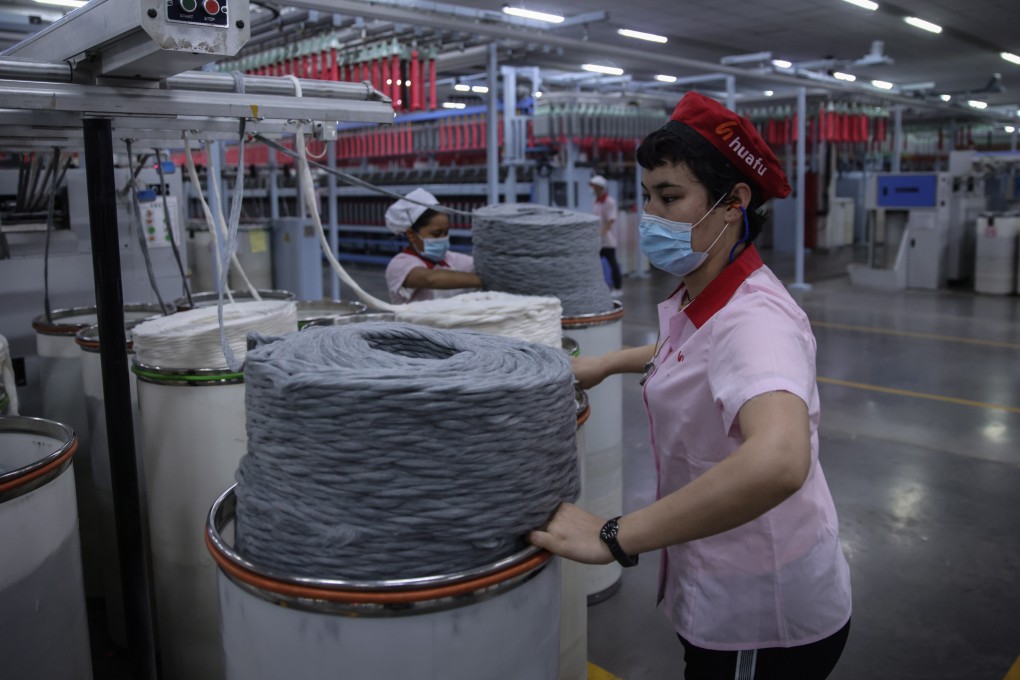
This article is republished from a three-part newsletter series on Xinjiang curated exclusively for our digital subscribers.
To access this newsletter series and others like it in the future, please support SCMP with a digital subscription and gain access to unrivalled coverage of the ‘two sessions’ and trusted analysis about China‘s growing impact around the world.
The escalating Xinjiang human rights controversy is rapidly souring relations between China and the West, as politics and commerce become increasingly linked. The rising tensions pose risks to the new EU-China investment treaty and are creating major headaches for Western fashion brands doing business in China.
US pushes sanctions on Xinjiang products
In response to mounting allegations of human rights abuses, the US government had prohibited importation of products from Xinjiang.
- On December 2, the US blocked the importation of any products made by the Xinjiang Production and Conservation Corps, (XPCC), the sprawling, quasi-military entity in northwest China that has been accused of widespread use of forced labour in its operations.
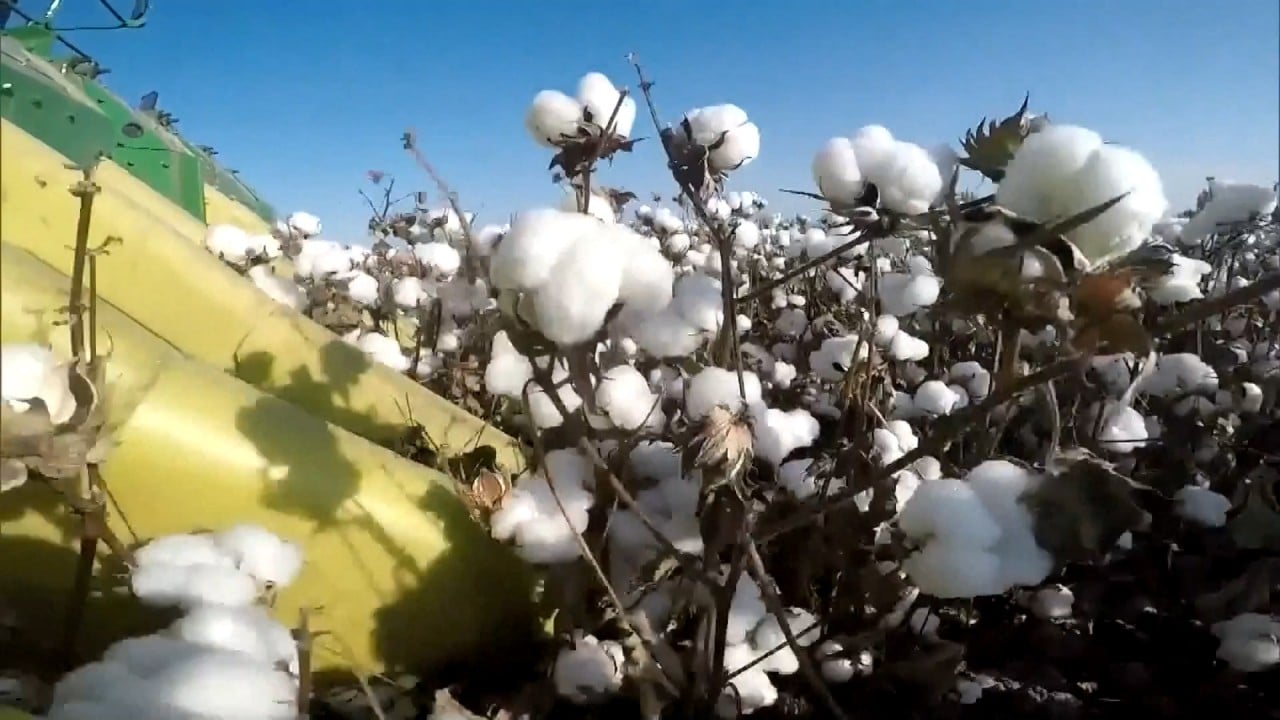
01:08
Xinjiang, China’s top cotton producer
- The XPCC accounts for about a third of total Chinese cotton production.
- The ban included not only XPCC cotton and cotton products but also any products that used XPCC cotton.
- On January 13, president Donald Trump upped the ante a week before he left office, banning all imports of cotton and tomato products from Xinjiang.
- The province is one of the top tomato growing regions of the world, with its output finding its way into tomato paste and ketchup worldwide.
US pressure on Xinjiang hasn’t reduced US imports from the province, at least not yet
- US imports from the troubled province more than doubled in 2020 compared to 2019 despite Trump sanctions.
- The latest data confirms this trend, with US imports from Xinjiang more than doubling in the first quarter this year compared to the first quarter 2020.
- While the first quarter comparison is skewed by the coronavirus-hit the Chinese economy took in the first quarter last year – contracting 6.8 per cent – Xinjiang exports were still up 46.5 per cent from the first quarter 2019, before the pandemic.
- US imported a wide variety of products from Xinjiang in the first quarter, led by chemical and industrial products, with very few garments included.
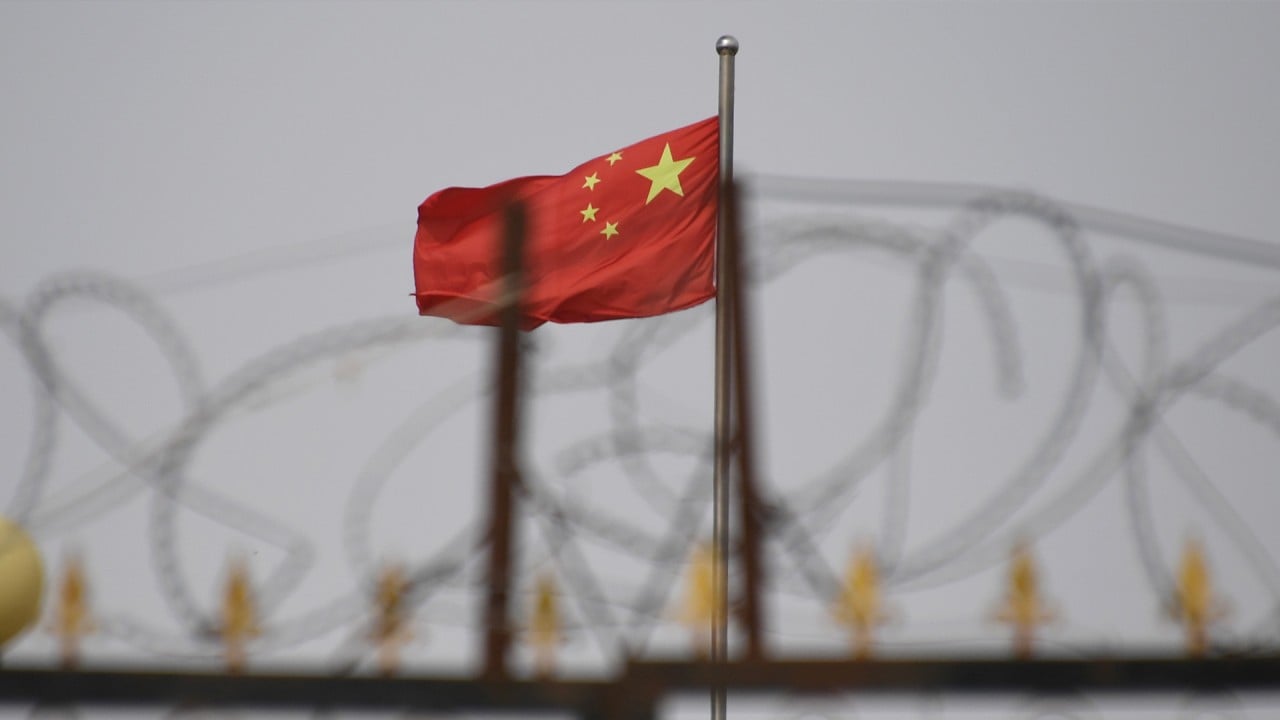
03:36
Beijing hits back at Western sanctions against China’s alleged treatment of Uygur Muslims
- Some analysts suggest there is a lagged effect from US sanctions, which will increasingly bite as time goes on.
- But the data also underscores how dependent the US and the West are on China-based supply chains, as this survey shows.
Better Cotton Initiative fumbles the ball, spurring China to create competing group
Switzerland-based Better Cotton Initiative (BCI), launched in 2009 to promote good practice in cotton industry, has been pressured over its handling of forced labour claims in Xinjiang.
- In March 2020, the BCI suspended licencing and assurance activities in Xinjiang due to “persistent allegations” of forced labour.
- In October, BCI announced that it was withdrawing from the region, citing “sustained allegations of forced labour and other human rights abuses” leading to “an increasingly untenable operating environment”.
- This was in stark contrast to a statement in January 2020, when it told industry publication Apparel Insider that neither its own investigations nor third-party audits found “any evidence of incidences of forced labour on farms within BCI programmes”.
- But in March this year the head of its Shanghai branch told state broadcaster CCTV that the organisation had never found evidence of forced labour in Xinjiang.
- BCI came under fire in China last month for removing a statement on its website about forced labour in Xinjiang without explanation amid boycotts of foreign fashion brands.
- BCI said the statement was removed due to a cyberattack on its website and its policy remained unchanged.

02:46
UK parliament declares Uygurs suffering ‘genocide’ in China’s Xinjiang
- Amid the rising controversy, China stepped up plans to launch its own version of the Better Cotton Initiative.
- Beijing plans for Weilai Cotton, or future cotton, project began two years ago but were accelerated in January when two state-run organisations joined the group.
- After a boycott in March against a number of foreign fashion and sportswear brands, Chinese sports brands Anta, Li-Ning and Fila China said they planned to quit the Better Cotton Initiative.
Xinjiang forced labour allegations risk scuttling new European Union-China investment deal
- At the end of December, after seven years of negotiation, EU and China trade negotiators reached agreement to give investors greater access to each other’s region.
- The investment deal was reached after China agreed to “effectively implement ILO [International Labor Organization] conventions it has ratified, and to work towards the ratification of the ILO fundamental conventions, including on forced labour,” the EU said.
- This was insufficient for many members of the European Parliament, who threatened to hold up ratification of the deal until China fully ratified the ILO conventions.
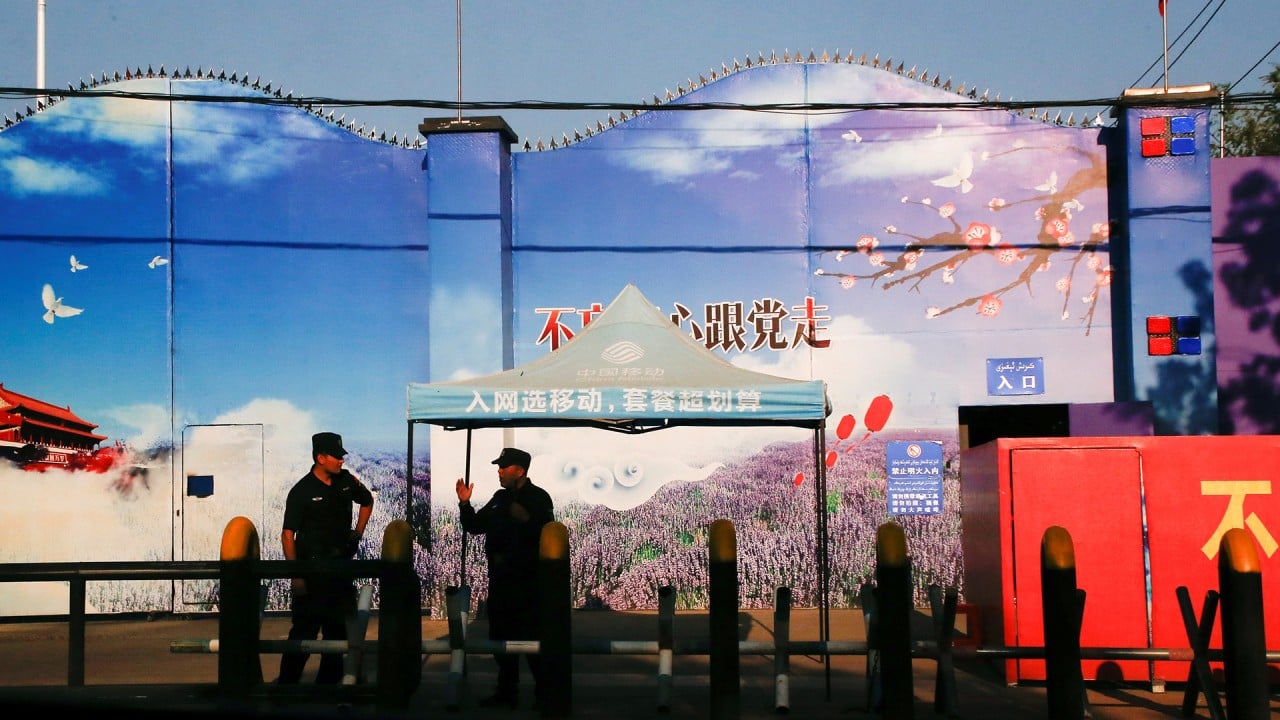
02:27
US declares China has committed genocide in its treatment of Uygurs in Xinjiang
- In March, the US, UK, Canada and European Union placed sanctions on Chinese individuals and firms in connection with alleged human rights abuses in Xinjiang. China immediately retaliated with sanctions of its own.
- The EU sanctions were the first on China since the aftermath of the Tiananmen Square crackdown in 1989, but the EU is unlikely to copy the US hardline stance on Xinjiang.
- EU Parliamentarians reacted badly to the Chinese sanctions, saying they would not debate the investment treaty until they are removed.
- The EU Parliamentarians, already unhappy with the investment treaty’s labour provisions, have threatened to kill the plan.
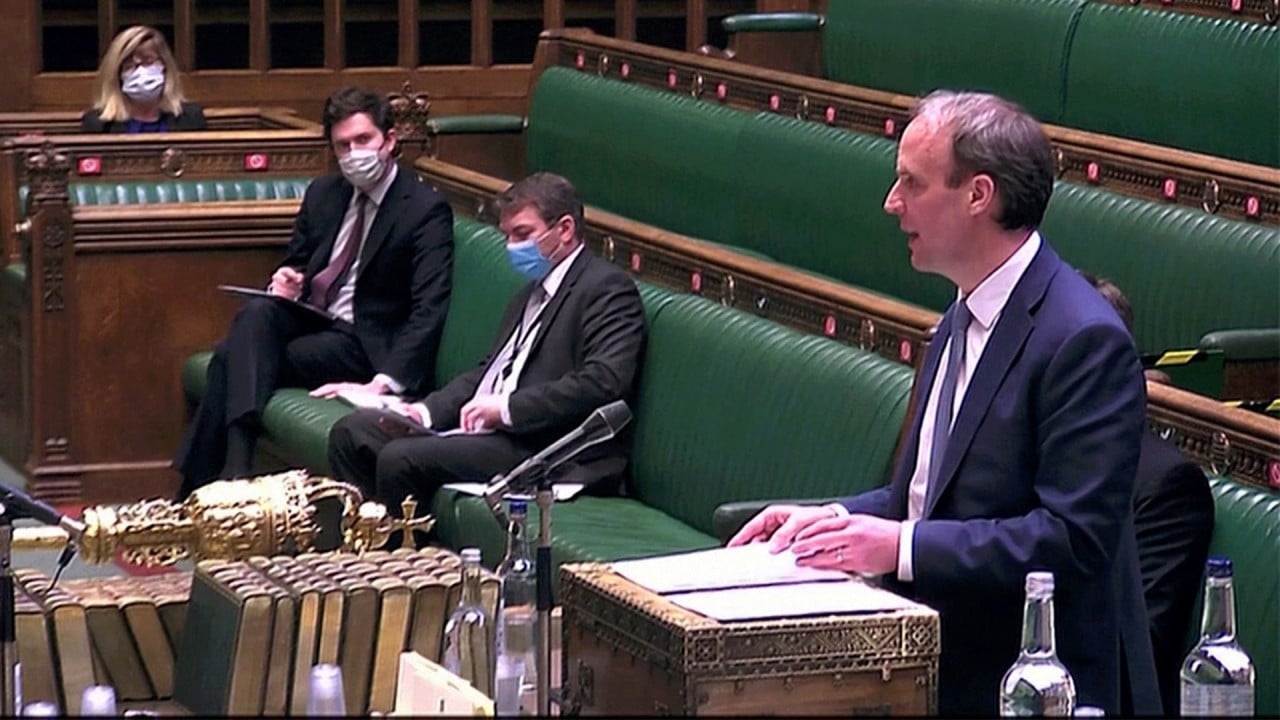
02:02
Britain sanctions Chinese officials over Xinjiang alongside US, EU and Canada
- German Chancellor Angela Merkel, the most powerful politician in Europe and a key supporter of the China investment deal, will step down in September, raising questions about the future of the agreement.
- The German and Chinese foreign ministers, after a meeting in April, called for the EU to engage with China, but Merkel also urged Beijing to resume its human rights dialogue with the EU.
- Last week, EU trade chief Valdis Dombrovskis was quoted as saying that “the environment is not conducive to the ratification of the [investment] agreement” and that the Commission had suspended some efforts to promote it.
- An EU spokesman quickly walked back Dombrovskis’ comments, saying that the ratification process had not been suspended.
- However, the spokesman added that “the ratification process cannot be separated from the evolving dynamics of the wider EU-China relationship” and that the sanctions imposed by China on EU officials and institutions were “unacceptable and regrettable.”
China consumers join boycott of Western brands not using Xinjiang cotton, displaying power of world’s largest retail market
- The flurry of sanctions between China and the US, UK, Canada and EU quickly caused a backlash among Chinese consumers.
- The day after the sanctions announcement, the Communist Youth League took to Weibo, the Chinese equivalent of Twitter, to complain about a statement issued by Swedish retailer H&M last year that it did not use Xinjiang cotton in its products even while the Chinese retail market was one of its biggest.
- The reaction was fast and furious, with H&M, the world’s third largest fashion retailer by sales, facing a consumer boycott, with its products removed from the biggest e-commerce sites.

02:38
Global brands face backlash in China for rejecting Xinjiang cotton
- The backlash quickly spread to other foreign brands like Nike, Adidas and Calvin Klein.
- Chinese consumers were torn between their favourite foreign brands and supporting Xinjiang. Many bought Xinjiang-made cotton products to show support.
- The Xinjiang cotton row shows the increasingly politicised commercial environment in China, with firms facing a backlash if they say anything perceived to be anti-China.
- Complicating matters further, a United Nation’s report warned that “well-known global brands” may be linked to alleged Xinjiang human rights abuses.
What does the future hold for the commercial relationships between China and the West?
- China believes it has leverage with foreign companies and their governments because of the size of its domestic market – more than one billion consumers.
- Many large Western multinational firms depend on China for a good share of their profits.
- Beijing has played hardball so far with Western concerns about Xinjiang, as it sees no room for compromise on issues of sovereignty and because it believes the Xinjiang allegations are problematic and short on evidence.
- It remains to be seen if China’s approach will bring results with the West or will backfire.
In our next Xinjiang series newsletter – We will explore Chinese diplomatic moves in response to the Xinjiang human rights issue.